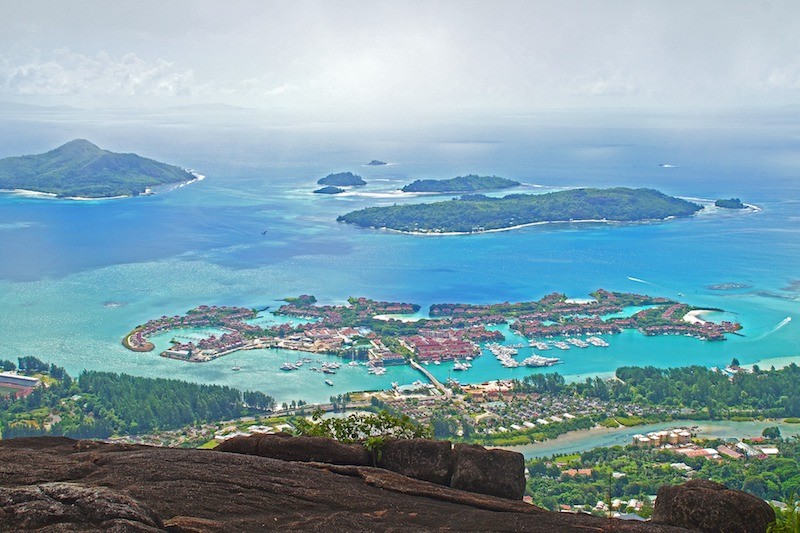Seychelles company formation with a bank account is a popular option for for asset protection and financial privacy. This is largely due to the provisions set forth by the Seychelles International Business Companies (IBC) Act of 2016.

Seychelles IBC Formation
International business companies are the most common legal vehicles utilized in the Seychelles for offshore incorporation. In 2016, fundamental changes were made to the IBC regime. The IBC Act of 2016 was introduced in response to the concerns of the Eastern and Southern Africa Anti-Money Laundering Group (ESAAMLG). The act was also prompted by the standards of the Financial Action Task Force (FATF). The act introduced key changes to the provisions of the IBC Act of 1994.
Prohibited Activities Under IBC Act of 2016
The new act extended the list of prohibited activities for International Business Companies in Seychelles. As a result of the 2016 Act, Seychelles IBC’s can no longer carry on securities business within Seychelles. They may, however, still conduct securities business offshore. They are also no longer allowed to carry on gambling / gaming business in Seychelles. This restriction includes interactive gambling businesses as a Seychelles company. This restriction does not apply to gambling business conducted in other jurisdictions, provided that the other jurisdictions license gambling. Seychelles IBC’s are also prohibited under the 2016 Act from carrying on business as a mutual fund. The exceptions to this rule are companies that are licensed to do so under the Mutual Fund and Hedge Fund Act of Seychelles. IBC’s operating as mutual funds in jurisdictions that allow such activity are also excluded.
Protected Cell Companies
The 2016 IBC Act provided for IBC’s to act as Protected Cell Companies (PCC). This provision was designed to attract value-added businesses to Seychelles. PCC’s are most often used in conjunction with mutual funds or offshore captive insurance businesses. This is particularly true when the insured and the insurer of the offshore captive insurance business are affiliated parties.
Real Estate and Vessels
Seychelles IBC’s are no longer able to lease Seychelles property. This is due to the requirement that the business of an IBC be conducted offshore. It was decided in 2016 that allowing IBC’s to lease property was at cross-purposes with this requirement. Likewise, IBC’s can no longer hold bonds, treasury bills, or other securities that are issued by the Central Bank of Seychelles or the Government of Seychelles.
IBC’s are allowed to own and manage vessels registered in Seychelles. The vessel may be situated in Seychelles water or in another jurisdiction. The vessel may not, however, be involved in any commercial activity in the Seychelles. This includes commercial fishing, charters, or tourism activity in which the vessel is utilized.
Reporting Requirements
IBCs are not required to submit annual returns in their year of incorporation. IBC’s are also not required to keep their records in Seychelles. They are only required to file a declaration of records including the types of records kept, such as accounting records, minutes, etc. This declaration must also contain the address details of the location where the records are stored. IBC’s that do not file annual returns for years where they are required to do so are liable for a fine. If the IBC simply did not file, it is liable for a fixed penalty fee of US$ 500. If, however, an IBC is found to have filed a false or misleading return, it is liable for a fine of US$ 5000.
All Seychelles IBC’s are required to keep a Beneficial Owners Registry at their registered office. They must also keep a Registrar of Directors. The Registrar of Directors must be kept at the IBC’s registered office and it must also be on file with the Seychelles registrar.
Additionally, all Seychelles IBCs are required to keep a register of charges at their registered office. Seychelles IBC’s are not currently required to file their register of charges with the Seychelles Registrar. However, the disclosure of an IBC’s register of charges is now being used as a determination of priorities among secure creditors. Under revisions listed in the 2016 IBC Act, a legal practitioner acting in the stead of the chargee may lodge an application for a registration of charge.
Bearer Shares
Changes brought by the 2016 IBC Act initiated a complete ban on bearer shares. Bearer shares are equities securities that are owned in their entirety by whoever owns the physical stock certificate. When bearer shares are issued, the owner of the stock is not registered. The transfer of ownership is also not recorded when issuing bearer shares. Because bearer shares can no longer be issued, the beneficial owners of an IBC’s stock must be registered. Transfers of ownership of Seychelles IBC’s stock must also be recorded.
Director Requirements
Directors of a Seychelles IBC must be appointed within nine months of the date of incorporation. Seychelles courts also have the discretion to ban an individual from performing an officer function in an IBC if they have previously been involved in fraud or other business misconduct.
Benefits of Seychelles Incorporation
Tax Exemption
IBC’s are 100% tax exempt in the Seychelles. This exemption includes business tax, personal income tax, capital gains tax, and stamp duties for non-residents of the Seychelles. It also applies to withholding taxes related to dividends, royalties, and interest for non-residents of the Seychelles.
These exemptions cover both assets and income that belong to the Seychelles IBC. They also apply to the Seychelles IBC itself. There is an annual government fee, which is due on the anniversary of the date that the IBC was incorporated. For the first year, the fee is US$ 115. From the second year onward, the fee is US$ 107.5. The government fees are set at a fixed rate for life. Additionally, these tax exemptions are guaranteed under the 2016 IBC Act to remain in force for 20 years from the date of incorporation.
No Share Capital Minimum
There is no share capital minimum or maximum for a Seychelles IBC. Shares of a Seychelles IBC may be issued in a variety of forms. These forms include par and no par value, voting or non-voting, and preferential or common. If a fund license is held, shares may also be issued as redeemable and non-redeemable. Shares may be issued for money or other assets. They may be issued in any currency and prior to payment being received.
100% Foreign Ownership
Directors, officers, and shareholders are not required to be Seychelles nationals. A minimum of one director is required for a Seychelles company when it is an IBC. Directors may be residents of Seychelles or non-residents. It is important when choosing a director to note where that person resides. Tax risk from directors who are residents of high tax jurisdictions could be attached to the Seychelles IBC. It is permissible for a sole shareholder to be the sole director of a Seychelles IBC. Directors may be natural or legal persons. Meetings of shareholders and directors may occur anywhere in the world.
No Secretary Requirement
There is no requirement for a Seychelles IBC to have a company secretary. Seychelles IBC’s do, however, have the option of appointing a company secretary. This may be a natural person or another legal entity of any nationality.
Easy bank account opening
There are many banks in Seychelles, including commercial banks for your Seychelles company formation. That is, you can set up a company in Seychelles and open a bank account in the company name.
Seychelles Background
Seychelles is an archipelago in the Indian Ocean, northeast of Madagascar in Africa. The Seychelles islands were uninhabited until 1501, when the Portuguese occupied them. The islands became a French Territory in 1756. In 1814, a lengthy battle between France and Great Britain ended with the islands under British control. A plantation-based economy developed under British rule, which was primarily dependent on imported labor from European colonies in Africa. Seychelles gained its independence in 1976. The official languages in Seychelles are Seychellois Creole, English, and French. Its current form of government is a presidential republic.
Since Seychelles gained its independence in 1976, the nation’s per capita output has expanded to roughly seven times its pre-independence levels. The country rose from a near-subsistence level of poverty to a high-income country in just over half a century. Growth has largely been driven by the tourism sector, which employs roughly 26% of the labor force. Tourism directly and indirectly accounts for over 55% of Seychelles GDP. Tuna fishing is also a growing industry within the nation.
In 2008, Seychelles depleted its foreign exchange reserves. As a result, the country defaulted on interest payments on a $230 million Eurobond. Seychelles requested assistance from the International Monetary Fund (IMF) and was subject to terms of conditionality on the basis of that assistance. These conditions included liberalization of the exchange rate, government downsizing, and liquidation of state assets. The IMF declared in December of 2013 that Seychelles had transitioned to a market-based economy. In 2017, Seychelles experienced a real growth rate of 4.1%. As of January 1, 2017, Seychelles became ineligible for trade benefits under the US African Growth and Opportunities Act. This decision came as the result of Seychelles achieving developed country status.



